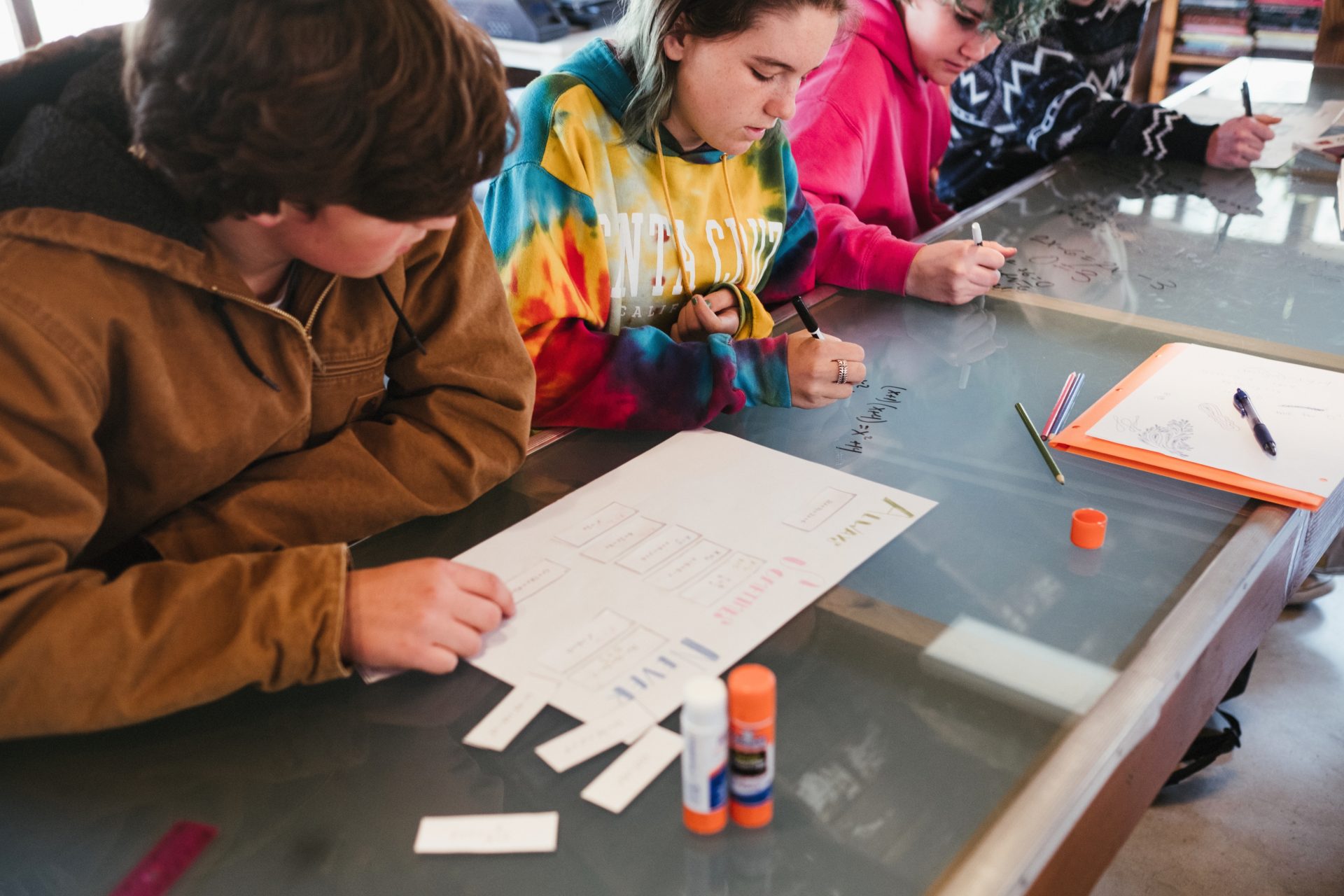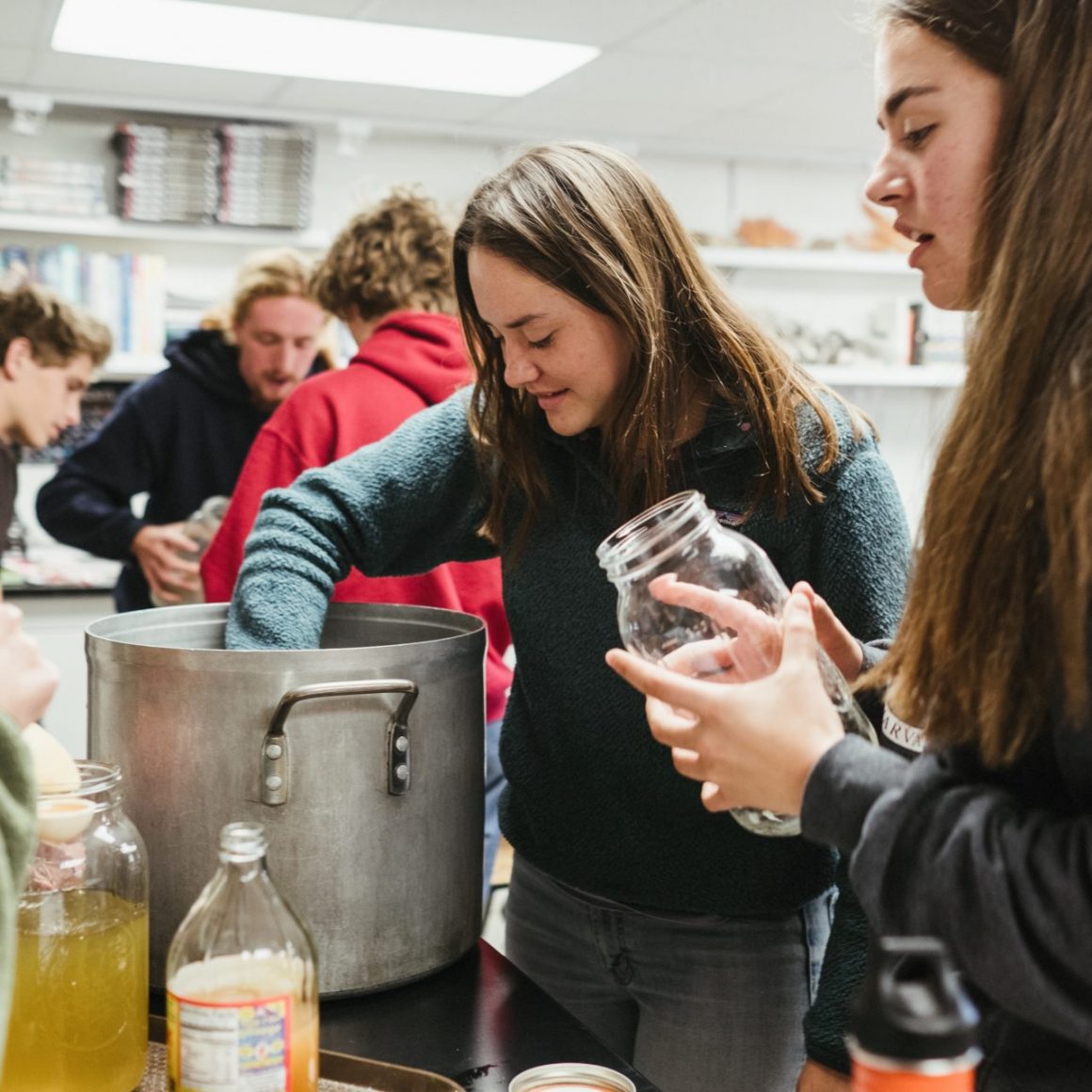Contact Information
-
MAILING : P.O. Box 8, Los Olivos, CA 93441
Midland's thoughtful approach to student course offerings
As a leader in experiential and place-based learning, Midland uses our 2,860-acre campus as our classroom, offering a vibrant and challenging exploration of place, from environment to history and culture. In the words of one of our alum, “We are doing what everybody else is learning about in the classroom.”
Founded on the belief that we learn best in community, Midland’s curriculum is hands-on and collaborative. Our teachers — drawing from extensive content knowledge and diverse life experiences — work alongside our students in a guided exploration of subject matter, helping them develop college-ready academic competencies and make authentic connections between their learning and the world beyond.
At Midland, our curriculum prioritizes seven core competencies. Read about each below, or download a printable version of Midland’s Portrait of a Graduate here.
When you believe that what you do matters the entire framework of learning changes, especially when guided by our core competencies and an emphasis on learning through experience.

Students work on math on dry erase tables that were built in a geometry class.
In Midland 101, students aren’t just reading about field ecology and local history — they are learning the local wildflowers and geology on hikes in our backyard, and engaging with the vibrant local Chumash history and culture in this valley. Our classes bring texts to life. Our campus is dotted with functional Geometry class projects, from our geodesic dome to trapezoidal desks to the foosball table. In World History, don’t be surprised if you find yourself on our farm as the starting point in a research paper on how certain plants changed history. Our curriculum empowers students to think deeply about critical issues. In Statistics this election year, students used published data from a California ballot initiative to investigate margins of error in polling. In U.S. Literature, students discuss the complexities of post-colonial indigenous identities and the power of oral traditions in Leslie Marmon Silko’s Ceremony.
Whether in Algebra 1 or Calculus 3, Midland 101 or Cultural Anthropology, we meet our students where they are and challenge them to push beyond their comfort zones. When it comes to elective courses, our students can be found at the potter’s wheel in Ceramics, and in the metal shop crafting jewelry for Design. Some students participate in internships for academic credit, harvesting homegrown broccoli and tomatoes for our lunch in Farm or moving the Midland cattle herd in Natural Horsemanship. People sometimes ask why we do offer honors courses, but not standardized AP courses. The answer is simple: We believe in inspiring students to be life-long learners through place-based, rigorous academics that prepare them for life, not simply a particular test.
The academic experience at Midland culminates in the Senior Project or Thesis, where students choose a topic of personal intrigue and write a college-level research paper or complete a long term investigatory project. Our students have worked to gentle wild mustangs, researched the effects of social media on teenagers, built computers from scratch using 3D printers, harvested honey from campus beehives, crafted incredible ceramic vases in our studio, and written and illustrated guides to wildflowers on campus — just to name a few.
And the cherry on top: colleges love Midland. Our rigorous courses center students, challenging, supporting, and inspiring them to grow as scholars, with the essential skills and autonomy necessary to thrive in college. Our students enter college equipped with the hard skills they need — ready to analyze texts and ideas deeply, write essays on nuanced topics, tackle complex math problems, engage authentically in scientific inquiry — in addition to the soft skills of time management, organization, collaboration, independence, and self-advocacy, skills that will benefit our students well beyond their academic careers.

Students fill jars with kombucha they made in a science class.